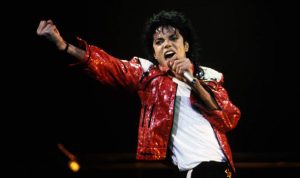Reports detailing India's interference in Canadian politics have surfaced, raising significant questions regarding electoral integrity and foreign influence.
India's Alleged Interference in Canadian Politics Raises Concerns

India's Alleged Interference in Canadian Politics Raises Concerns
Allegations emerge of India’s involvement in supporting Conservative leader Pierre Poilievre during the 2022 election campaign.
In a surprising turn of events, recent reports have surfaced surrounding alleged meddling by the Indian government in Canada's political landscape, particularly focusing on the 2022 Conservative Party leadership race. According to intelligence officials, Indian agents and their associates reportedly helped raise funds and organize support for Pierre Poilievre, a leading candidate in the Conservative Party and current challenger to Prime Minister Mark Carney. This development has thrust Poilievre into a defensive position amid growing scrutiny.
The Canadian intelligence community emphasizes that there was no evidence indicating that Poilievre or his close advisors were aware of these foreign interferences during the election process. Furthermore, despite Poilievre's decisive victory in the leadership race—where he garnered a sweeping 68 percent of the vote in the first round—questions linger regarding the broader implications of foreign influence on Canadian democracy.
Doubts have arisen concerning Poilievre's refusal to obtain top security clearance, which would grant him access to classified information regarding foreign interference in Canadian politics. Critics have noted that this refusal raises ethical concerns and restricts his ability to publicly address such intelligence. It was reported by The Globe and Mail that Poilievre was not informed of any Indian interference due to the absence of his security clearance.
A public inquiry that spanned a year has also identified India as a primary foreign actor in Canadian politics, alongside China, with the inquiry revealing that India has supported pro-India candidates in various elections. A disclosed intelligence report indicated that there indeed were signs of Indian interference in the Conservative Party leadership campaign.
As these allegations unfold, they bring to light the critical need for transparency and accountability within Canadian governance and the effects of foreign influence on its electoral processes. The ramifications of these reports could resonate well into future elections, as Canada endeavors to insulate its democracy from external manipulations.
The Canadian intelligence community emphasizes that there was no evidence indicating that Poilievre or his close advisors were aware of these foreign interferences during the election process. Furthermore, despite Poilievre's decisive victory in the leadership race—where he garnered a sweeping 68 percent of the vote in the first round—questions linger regarding the broader implications of foreign influence on Canadian democracy.
Doubts have arisen concerning Poilievre's refusal to obtain top security clearance, which would grant him access to classified information regarding foreign interference in Canadian politics. Critics have noted that this refusal raises ethical concerns and restricts his ability to publicly address such intelligence. It was reported by The Globe and Mail that Poilievre was not informed of any Indian interference due to the absence of his security clearance.
A public inquiry that spanned a year has also identified India as a primary foreign actor in Canadian politics, alongside China, with the inquiry revealing that India has supported pro-India candidates in various elections. A disclosed intelligence report indicated that there indeed were signs of Indian interference in the Conservative Party leadership campaign.
As these allegations unfold, they bring to light the critical need for transparency and accountability within Canadian governance and the effects of foreign influence on its electoral processes. The ramifications of these reports could resonate well into future elections, as Canada endeavors to insulate its democracy from external manipulations.





















